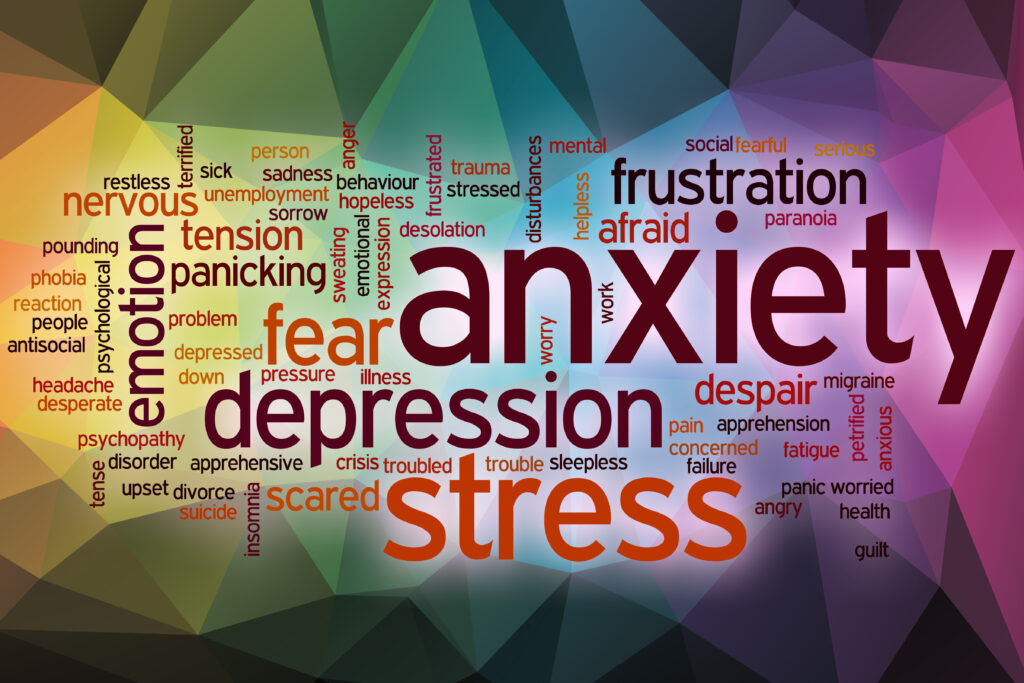Depression Defined
Depression, formally classified as a mood disorder, manifests through persistent sadness, marked loss of interest in once-enjoyed activities, and a collection of cognitive, emotional, and physical changes that impair daily functioning.
These experiences are referred to as symptoms of depression. While everyone occasionally feels down, a depressive episode lasts at least two consecutive weeks and represents a significant change from a person’s prior level of functioning.
Types of Depressive and Related Mental Health Conditions
Understanding which subtype of depression applies to your or a loved one’s symptoms is crucial because each requires a tailored blend of interventions, medication management, and psychotherapy.
- Major Depressive Disorder (MDD) – The classic form of acute, severe depression.
- Persistent Depressive Disorder (Dysthymia) – A chronic low mood lasting two years or longer.
- Bipolar Disorder – Alternating cycles of depression and mania; often misdiagnosed as unipolar depression.
- Seasonal Affective Disorder (SAD) – Depressive episodes tied to changes in daylight and seasons.
- Postpartum Depression – Onset during pregnancy or following childbirth.
- Premenstrual Dysphoric Disorder (PMDD) – Severe, cyclical mood disturbance preceding menstruation.
- Depression with Psychotic Features – May include hallucinations or delusional thinking related to self-worth or guilt.
Related illnesses, such as schizophrenia or personality disorder, can co-occur with depression and complicate treatment needs.

The Neuroscience Behind the Mood
Research suggests depression comes from a tangled mix of genetics, chemical imbalances—especially serotonin, norepinephrine, and dopamine—hormonal shifts, inflammation, and environmental stress.
These changes can reshape brain areas like the hippocampus and prefrontal cortex, strengthening negative thoughts and emotional pain.
So, effective treatment must address the brain’s biology and the person’s actual situation.
Recognizing Symptoms and Warning Signs
Not everyone experiences depression the same way, but common depression symptoms include:
- Persistent sadness, hopelessness, or emptiness
- Pronounced loss of interest or pleasure in hobbies, work, or relationships
- Changes in appetite or weight (significant gain or loss)
- Sleep disturbances—insomnia, early-morning waking, or hypersomnia
- Psychomotor agitation or noticeable slowing
- Chronic fatigue, low energy, or lack of motivation
- Feelings of worthlessness, excessive or inappropriate guilt
- Difficulty thinking, concentrating, or making decisions
- Recurrent thoughts of death or suicidal ideation
For adolescents, symptoms can surface as irritability, social withdrawal, declining academic performance, or risk-taking behaviors. In older adults, depression may masquerade as memory loss or physical aches, underscoring the importance of specialized geriatric assessment.
When these signs persist, professional mental health treatment becomes vital. A timely intervention can quite literally save a life.
Causes, Risk Factors, and Co-Occurring Disorders
Because every individual arrives with a unique mix of contributors, our assessment process digs deep into biopsychosocial history, ensuring that no contributing factor is overlooked. Depression seldom results from a single trigger.
Instead, multiple influences converge:
- Biological Factors
- Family history of mood or mental health disorders
- Neurotransmitter dysregulation
- Hormonal changes (thyroid dysfunction, perimenopause, postpartum)
- Psychological Factors
- Chronic stress, trauma, or adverse childhood experiences
- Negative thought patterns and cognitive distortions
- Maladaptive perfectionism or low self-esteem
- Environmental and Lifestyle Factors
- Social isolation or strained relationships with family members
- Financial stress, job loss, or academic pressure
- Poor nutrition, lack of physical activity, and disrupted sleep
- Substance Abuse and Dual Diagnosis
- Regular substance use—including alcohol, stimulants, and opioids—can both mask and magnify depressive episodes
- Regular substance use—including alcohol, stimulants, and opioids—can both mask and magnify depressive episodes
- Medical Conditions
- Chronic pain, autoimmune diseases, diabetes, and cardiovascular illness elevate depression risk, as do neurological conditions such as Parkinson’s disease

Thoroughbred’s Treatment Approach: Evidence-Based, Holistic, Client-Centered
Healing from depression requires more than symptom suppression. It needs sustainable transformation. Thoroughbred Wellness and Recovery integrates the most effective elements of modern behavioral healthcare with a holistic approach that honors mind, body, and spirit.
Core Modalities and Therapies
- Cognitive Behavioral Therapy (CBT) teaches guests to identify and reframe unhelpful thoughts driving mood symptoms.
- Dialectical Behavior Therapy (DBT) combines mindfulness, distress tolerance, and emotion-regulation skills, especially helpful for self-harm or personality-related concerns.
- Family Therapy improves communication, sets healthy boundaries, and mobilizes family members as allies.
- Individual Therapy is one-on-one sessions focused on personal goals, trauma resolution, and coping skills.
- Group Therapy facilitates peer support, social learning, and shared accountability.
- Psychotherapy is an umbrella term encompassing psychodynamic, existential, and interpersonal approaches utilized by our licensed clinicians.
- Holistic services—yoga, expressive arts, nutrition counseling, physical fitness coaching, and meditation—round out the program and support overall well-being.
Continuum of Care: Matching Level of Care to Clinical Need
A hallmark of Thoroughbred Wellness and Recovery is the seamless movement between intensity levels, ensuring the right support at the right time.
Movement through these stages is never rigid; our treatment team reassesses progress weekly, adapting treatment programs to reflect current needs.
Crafting a Personalized Treatment Plan
No two journeys are identical, so Thoroughbred’s first step is a comprehensive biopsychosocial evaluation by our multidisciplinary team, which includes psychiatrists, psychiatric nurse practitioners, psychologists, social workers, and licensed professional counselors.
Together with the guest (and often a loved one or trusted caregiver), we outline:
- Clinical Goals – Examples include reducing depressive symptoms, eliminating suicidal ideation, and restoring regular sleeping patterns.
- Therapy Frequency and Modalities – Customize the blend of CBT, DBT, psychotherapy, and specialized groups (grief, trauma, co-dependency).
- Medication Management Strategy – Select evidence-based pharmacotherapy, address side effects, and schedule lab monitoring if needed.
- Co-Occurring Disorders – Integrate substance abuse counseling and support groups for opioid use.
- Family Engagement – Weekly or bi-weekly family therapy sessions to align support systems.
- Wellness and Holistic Supports – Nutrition coaching, exercise regimen, sleep hygiene, spirituality, or creative arts.
- Aftercare Plan – Step-down schedule, alumni groups, virtual check-ins, and community resources to safeguard progress.
Each plan remains fluid; regular therapy sessions and psychiatric check-ins allow timely adjustments.
Special Populations and Focus Areas
Adolescents and Young Adults
Teen depression often interweaves identity exploration, academic pressure, and emerging independence. Our adolescent track offers age-appropriate social-skills groups, family education, and experiential therapies that resonate with youth culture.
Women’s Mental Health
Hormonal milestones—menarche, pregnancy, postpartum, perimenopause—warrant gender-sensitive care. Thoroughbred clinicians address PMDD, perinatal depression, and body-image concerns with empathy and expertise.
Veterans and First Responders
Trauma-informed interventions, peer groups, and dedicated case management address PTSD, moral injury, and mood disturbances common in service populations.
Complex Dual Diagnosis
Clients facing bipolar disorder, schizophrenia, or personality disorders alongside depression benefit from coordinated psychiatry, medication titration, and skills training to enhance emotional regulation and interpersonal effectiveness.
Daily Life with Depression: Coping Skills for Real-World Wellness
Healing does not end when formal programming pauses for the day. We teach practical tools to navigate work, relationships, and self-care:
- Mood Monitoring: Tracking triggers, negative thought patterns, and early warning signs to prompt proactive coping.
- Behavioral Activation: Scheduling meaningful activities to generate positive reinforcement, even when motivation is low.
- Mindfulness & Grounding: Breathwork, body scans, and sensory exercises that reduce rumination and anxiety.
- Sleep Hygiene: Consistent wake/bed times, tech curfews, and calming rituals to reset circadian rhythms.
- Nutrition & Exercise: Balanced meals rich in omega-3s, lean protein, and complex carbs; moderate activity each week.
- Relapse Prevention Plan: Identifying high-risk situations, establishing sober supports, and rehearsing refusal skills for substance abuse triggers.
Collectively, these strategies promote sustained quality of life, not merely symptom reduction.
Preparing for Life After Treatment: Continuing Care and Community Integration
A robust aftercare plan is drafted long before discharge. Elements include:
- Step-Down Services: Scheduling first outpatient psychiatry and therapy appointments within seven days of program completion.
- Peer Support: Connection to alumni groups, Depression and Bipolar Support Alliance (DBSA) meetings, or SMART Recovery.
- Family Coaching: Ongoing education for spouses, parents, and adult children to reinforce healthy boundaries and relapse-prevention strategies.
These safeguards ensure that strides made in treatment translate into durable, real-world gains, reinforcing overall well-being.
When Is a Higher Level of Care Necessary?
Sometimes outpatient therapy is not enough. Consider stepping up to inpatient, PHP, or IOP when:
- Suicidal thoughts or self-harm behaviors intensify
- Antidepressants fail to produce relief after adequate trials
- Daily tasks—showering, eating, attending work—feel impossible
- Substance abuse spirals out of control
- Social withdrawal jeopardizes relationships or job stability
Early escalation prevents crises and shortens overall recovery time.

Getting Started at Thoroughbred Wellness and Recovery
- Confidential Assessment: Call, email, or complete an online form; our admissions specialists schedule a same-day clinical screening.
- Insurance Verification: We coordinate directly with several major health plans in Georgia and beyond, clarifying benefits and any out-of-pocket costs.
- Collaborative Admission Date: Within 24-48 hours (often same day for urgent cases), you or your loved one can enter the appropriate program.
- Warm Welcome: On arrival, you will meet your primary therapist, psychiatrist, and nursing team, then tour the treatment environment—a calm, secure space designed for healing.
Because depression seldom waits, our streamlined intake ensures that you receive compassionate, timely care.
Why Choose Thoroughbred Wellness and Recovery?
- Comprehensive Depression Treatment Center in Atlanta, GA – Full spectrum of care under one roof.
- Our Team – Board-certified psychiatrists, nurse practitioners, psychologists, licensed therapists, and recreation specialists.
- Customized Treatment Plans – No cookie-cutter protocols; every plan reflects individual strengths, preferences, and cultural background.
- Integrated Dual-Diagnosis Services – Addressing both mental illness and substance use disorders concurrently.
- Family Involvement – Education and therapy that empower family members to become active partners in recovery.
- Aftercare Commitment – Long-term support to protect your investment in health and happiness.
The Right Treatment Facility is within Reach
Depression can feel isolating and overwhelming, but with the right treatment facility, compassionate professionals, and a strong support network, recovery is not only possible—it is probable.
Whether you need intensive stabilization through our partial hospitalization program, ongoing structure in an intensive outpatient program, or flexible outpatient treatment while balancing work and home responsibilities, Thoroughbred Wellness and Recovery stands ready to guide you every step of the way.
If you or someone you love struggles with persistent sadness, hopelessness, or any of the challenges discussed above, reach out today at 770-564-4856. Together, we will craft a personalized pathway toward restored well-being, renewed purpose, and a future rich with possibility.










